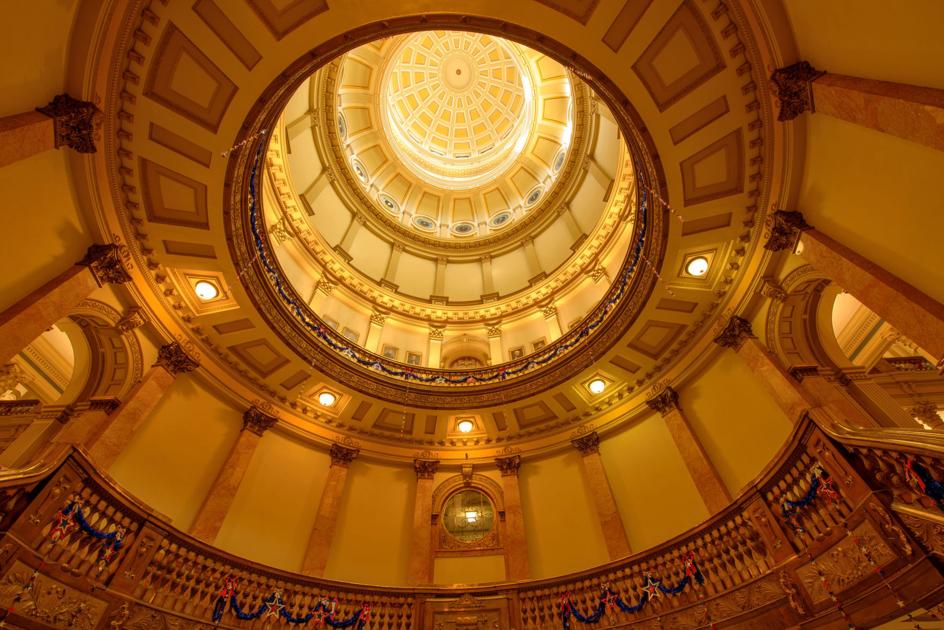As usual, the hefty Democratic majorities in the Colorado state legislature spent much of their time fighting against the libertarian spirit of Colorado voters rather than the opposition party Republicans.
That is a summary view of the 2021 session of the Colorado state senate and state house of representatives, which adjourned about two weeks ago. On the last day, with an air of fiscal desperation, the majority Democrats passed in both houses a two-year property tax cut designed to head off a November ballot measure that would cut property taxes permanently.
Really? The Democratic majority in the state Capitol in Denver is checking a libertarian-inspired property tax cut while the proposed tax cut, supported by lobby group Colorado Rising Action, is still gathering signatures for a ballot issue in an election five months away?
It is another reminder that Colorado Democrats, who won control of both houses of the Colorado legislature in November of 2018, get elected by promising to spend lots of state money solving social problems. Those big spending plans get checked, however, by harsh limits on revenue-raising placed in the Colorado constitution by the state’s voters at the behest of those with a libertarian frame-of-mind.
The attempt to head off a future property tax decrease was not the only example in the 2021 session of the state legislature of the majority Democrats dancing to a libertarian-inspired tune. Democrats were congratulating themselves on the enactment of a $5.4 billion transportation bill with some of the money earmarked for repaving Colorado’s woefully maintained highways and bridges.
In order to finance this transportation package, however, the Democrats had to conform to Proposition 117, a ballot proposal initiated by libertarian types that required a vote on all state fee increases that raised more than $100 million in the first five years. The voters adopted it less than a year ago in November of 2020.
With Proposition 117 rules clearly in mind, the Democratic legislature increased gasoline fees, delivery fees, and taxi-type ride fees, but had to simultaneously create government boards to see that income from each fee remained under $100 million in five years.
In essence, elected state legislators were forced to conform to rules and regulations put on the election ballot by libertarian-style thinkers who were not elected by anybody. Those libertarian-style thinkers do have a knack, however, for getting Colorado voters to adopt their ideas on tax limitation at the ballot box.
The libertarian grip on Colorado state finances began in 1992 when Douglas Bruce, a Colorado Springs resident originally from California, succeeded in getting TABOR adopted by state voters. This amendment to the Colorado state constitution was sold to the voters with the slogan, “A vote on all tax increases.”
Barely mentioned in the election campaign was that the ballot issue not only required a vote on any proposed increase in state and local taxes but also put limits on the amounts of revenue that could be raised by state and local governments. TABOR was an acronym for “Taxpayers’ Bill of Rights.”
From the very beginning in the early 1990s, TABOR began reducing government revenues and putting major state programs such as K-12 education, public colleges and universities, and highways and bridges on starvation financial diets.
TABOR is mainly a problem when the Democrats, as now, control both houses of the state legislature and the governor’s office. The Democratic Party in Colorado is reform oriented and likes to adopt big spending education and welfare programs. It is the libertarian-inspired tax limitation in the state constitution, and not the Republicans, that frustrates the Democrats’ spending hopes.
The Democrats found a way to work around TABOR revenue limitations by raising fees rather than taxes. Auto registration fees were raised to high numbers and charges to get into state parks and campgrounds were increased. Registration fees on even 22-year-old vehicles in Colorado can run as high as $75.
As noted, the libertarian-minded took care of the increasing fees by getting the voters to adopt Proposition 117, which mimics TABOR by requiring, “A vote on big fee increases.”
It is embarrassing that our popularly elected state legislature, supposedly the very symbol of our democratic form of government, had to jump through all those Libertarian designed hoops to raise at least some money by increasing a few fees.
Also embarrassing is the nature of the fees. A mini-rise in gasoline fees, a fee for delivering products to your door, and a fee on taxicab-like rides (Uber and Lyft), all tailored to that $100 million five-year limit, does not appear to be a very good long-range way to solve the state’s ever increasing highways and bridges problems.
Where can we find real leadership on solving Colorado’s financial woes? Leading state elected officials, starting with the governor, should organize and lead statewide election drives to raise state taxes and fees to the amounts required to have a decent level of services in our state.
Elected leaders do not do that, however, because leading the drive for voting to raise taxes and fees would threaten the elected leaders’ future prospects for being elected or reelected to public office.
Apparently the battle for control of Colorado state finances will go on raging between the Democratic Party in the legislature and the libertarian spirit scoring points at the ballot box. So far the Republicans have been bystanders in this great struggle, watching and commenting but not really participating.
Bob Loevy is a retired political scientist at Colorado College.
This content was originally published here.

